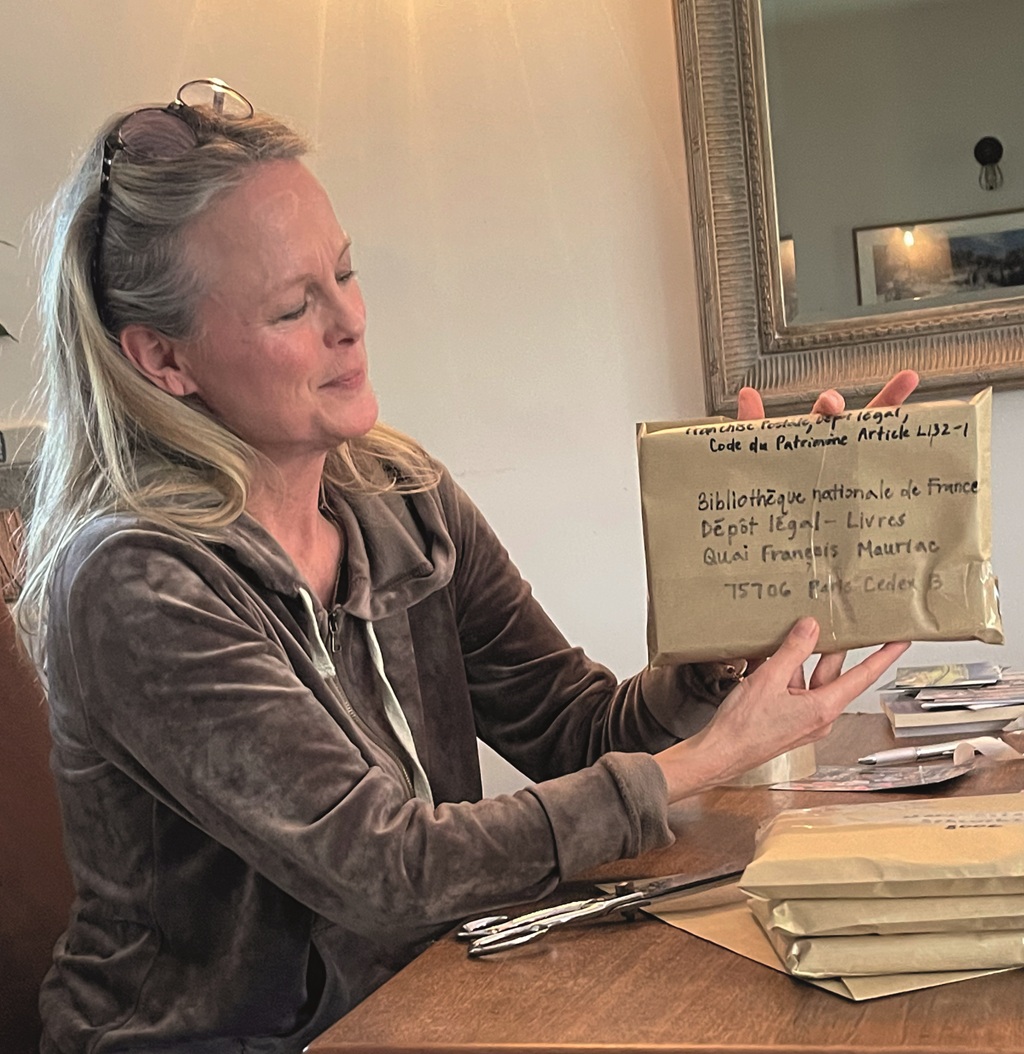Did you know that publishing a book in France without following the rules could result in a fine? A whopping €75,000 – if you forget one crucial step: le dépôt légal. As I sat at my laptop, in the final stages of editing A Year in a French Life, I thought I’d tackled a last-minute hurdle of printing a book in a foreign country: I’d just bought an ISBN from AFNIL and thought I was finally ready to publish.
Then a note arrived with my receipt: “Le dépôt légal de l’ouvrage imprimé est à faire à la BnF selon les modalités en vigueur.” (The legal deposit of the printed work must be made at the BnF according to the terms in force.) Just what did that mean? And what was la BnF? Did I need a lawyer? Perhaps ChatGPT could help. Since I’ve never been good at bureaucracy and legalese, I asked Al to explain le dépôt légal to me as if I were seven years old, in plain English… What came back from my query not only demystified the administrative process, but delighted this kid at heart…

Once upon a time
“A long, long time ago – almost 500 years ago! – a French king named François I had a big idea. He loved books and wanted to make sure that every book written in France would be saved forever. So in 1537, he made a rule: every time someone printed a new book, they had to give a copy to the Royal Library (which later became the Bibliothèque nationale de France, or BnF). This way, no story, poem, or idea would ever be lost.
“At first, only a few books were collected, but as the years passed, more and more authors and printers followed the rule. Later kings and presidents expanded it, making sure newspapers, maps and even music recordings were also preserved. Today, the BnF has millions of books stored like treasure in vast buildings, protecting them for future generations to read. Thanks to dépôt légal, if you write a book in France, a copy will be saved forever – maybe a kid in the future will read your story in a grand, magical library!”
Saperlipopette! My seven-year-old self thinks this is pretty cool. And it turns out meeting the legal requirement is simple. Just include the words ‘dépôt légal’ and the month and year on your book’s copyright page, fill out the registration form on the BnF website, and send a copy of your book to the Bibliothèque nationale de France in Paris. Finally, mark the envelope ‘Franchise postale, Dépôt légal, Code du patrimoine article L132-1. No need for a stamp – the French government picks up the tab, though they’ll fine you 75 grand if you neglect to send in your ouvrage. And really, who would skip this step, knowing their book will soon share shelf space with Montaigne, Pascal, Molière and Colette – waiting to be stumbled upon in that magical, ever-expanding library of the future? Surtout pas moi!
*An ISBN (International Standard Book Number) is unique identifier for books
*AFNIL (Agence Francaise pour la Numérotation Internationale du Livre) is the French Agency for International Book Numbering
FRENCH VOCABULARY
- LE DÉPÔT LÉGAL = legal deposit, mandatory submission of a book to the BnF
- LA BNF (BIBLIOTHÈQUE NATIONALE DE FRANCE) = National Library of France
- LE PATRIMOINE = heritage, legacy
- SAPERLIPOPETTE! = gosh! (old-fashioned exclamation)
- FRANCHISE POSTALE = postage paid by the government
- UN OUVRAGE = a work (book, publication)
- SURTOUT PAS MOI! = certainly not me!
From France Today Magazine
Lead photo credit : © KRISTIN ESPINASSE
Your email address will not be published. Required fields are marked *
